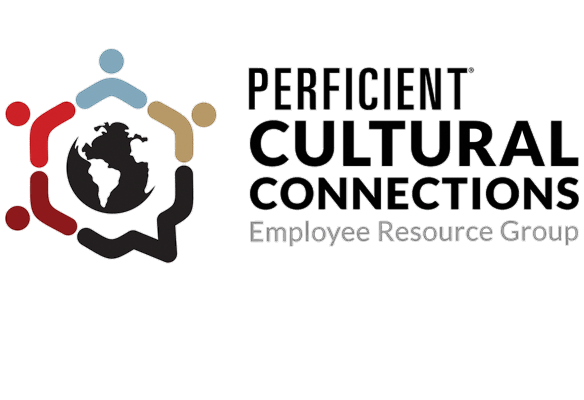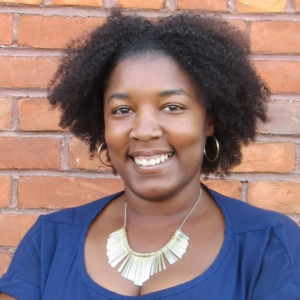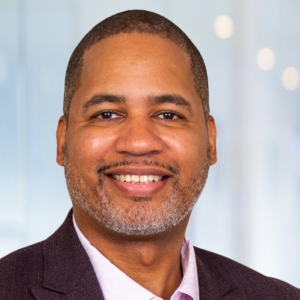Honoring the Black Community
Black History Month honors Black individuals’ contributions, achievements, adversity, and legacy in the U.S. and beyond. This is a time to honor the role of the Black community throughout history and celebrate its culture. It’s also a time to reflect on the future and on the importance of continuing efforts to foster a culture of diversity and inclusion in organizations.
Perficient Continues to Foster a Culture of Inclusion
At Perficient, we believe in developing a workforce that is as diverse and inclusive as the clients we work with. Our global business promises to create opportunities for our people to collaborate with the top talent around the world with diverse cultures and backgrounds that help shape who we are as an organization. Our Cultural Connections Employee Resource Group has a mission of fostering a culture of inclusivity and allyship throughout Perficient and around the world.
I sat down with Ron Jones, Managing Director at Perficient, and Amyre Vincent, Senior Technical Consultant and Co-Chair of our Women in Technology Employee Resource Group to talk about Black History Month.
What is your role at Perficient?
|
|
I recently celebrated four years with Perficient and am currently a Senior Technical Consultant in the Detroit BU. My primary client focus right now is Salesforce Admin and DevOps. Outside client work, I pay forward my Perficient experience through mentorship (Perficient Bright Paths Program, Mark Cuban AI Bootcamp). I am also a co-lead for the North American chapter of our Women in Tech (WiT) ERG. Amyre Vincent |
|
|
I am a Managing Director for the Microsoft Global Consulting Services. Ron Jones |
What does Black History Month mean to you?
Amyre: I was a bit reluctant to answer this question because it has very nuanced aspects that require consideration. Though I acknowledge and celebrate Black History Month, it is more than a month for me. Black History is History, not a subplot. I think of it as a reminder and challenge to share OUR history for many who may not be aware of little-known but significant contributions. I am grateful to be surrounded by family and a village that made it a priority for us to understand our contributions, value, and as much history as they could, in and out of the classroom.
Ron: Black History Month is a regular, yearly reminder of how far we’ve come and how much work there is to do. It may start with factoids about peanuts and Super Soakers, but Black History Month should be viewed as a bookmark left in every calendar as a reminder to everyone, especially those members of the African diaspora caused by the Atlantic Slave Trade, that we have had a profound impact in our society. Black History Month captures the intent of Carter G. Woodson to constantly remind everyone of our shared history as a country and as a people. Our history and the pride in our achievements make this country great. Many communities have made deep contributions to this experience we call America, Black History Month allows us to take note, take stock, and start conversations we may not have otherwise.
Why do you think it is important to foster a culture of diversity and inclusion at work?
Amyre: My current team comprises eight individuals, and if you view us separately by any measure, each of us is good/solid in a completely different way. Through our projects, though, we thrive together as a team. It is incredible to be and to have (and truly feel) each other’s support as we learn and grow professionally and personally. That’s how I look at diversity and inclusion; any group of people is fine, but for a company to thrive, different viewpoints, backgrounds, and types of people are necessary to help build a culture that supports as many people as possible.
Ron: I have found that life is about experiences and exposure. If you hinder yourself from exposure to that which is different, you are also withdrawing from life itself. Too often we mistake diversity for race. We have to consider gender, race, socioeconomic status, and other factors. In my opinion, the most important part of Diversity, Equity, Inclusion, and Belonging (DEIB) is belonging. If we can ensure everyone has a sense of belonging, empathy wins the day and the other parts come naturally. And diversity becomes a competitive advantage. We are consultants, solving problems for the world’s biggest brands. Diversity drives better problem solving. Diversity of thought leads to increases in quality problem-solving. However, diversity for diversity’s sake is a failure for everyone involved. The more we learn about one another, the more we learn we are more similar than we are different. It’s important to see yourself in others, no matter the race, religion, ethnicity or ***, age, etc.
What is your advice to young Black professionals considering a career in the IT industry?
Amyre: Do It! If you are a lifelong learner, IT is definitely the place to be. There are so many opportunities to grow and stretch beyond what you can imagine. Find mentors and get a glimpse of what you’re getting yourself into. Reach out to build your network and connect with others. If you don’t know where to start, reach out to me!
Ron: For young Black professionals considering a career in IT, always remember you are not alone. Find your tribe. find your community at work and abroad. We have more in common than we think. Seek our relationships and step outside of your comfort zone. Work is a relationship. All relationships require investment. These investments pay off over time. At any given point in time, you will have at least three meaningful work relationships: your manager, your mentor, and your sponsor. Seek out both a sponsor and a mentor. Your manager, the person you report to, is not always your mentor. Find those who see themselves in you, those who are focused on your growth and development. You need advocates, those who can speak for you when you are not in the room. Those who know enough to speak for your true aptitude, not just what people see on paper.
Learn more about our Cultural Connections ERG.



